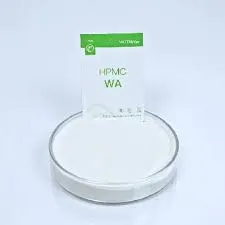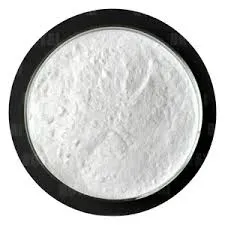
Feb . 01, 2025 04:41 Back to list
HEC


Moreover, the ionic strength of the solution can impact hydroxyethyl cellulose's solubility. In the presence of high concentrations of salts, the solubility of HEC can decrease due to the 'salting out' effect, where the competition between salt ions and water molecules effectively reduces the water available for HEC solubility. This phenomenon must be considered when formulating products for environments with variable salinity, such as certain food or nutraceutical products. From a practical standpoint, industry professionals often conduct solubility trials of HEC in various solvents and conditions to tailor the product to specific needs. For example, the formulation of a high-performing paint requires the right balance of HEC solubility to ensure optimal thickening, suspension, and stability of pigments. Similarly, in personal care applications, such as shampoos or lotions, the right HEC solubility ensures the desired texture and skin feel while maintaining product shelf-life. In terms of application, leveraging hydroxyethyl cellulose's solubility characteristics requires a strategic approach. Continuous innovations and research are pivotal. For researchers, understanding the intrinsic solubility parameters of HEC can lead to breakthroughs in product development, opening up new possibilities in biodegradable polymers or improved viscosity modifiers. To sum up, hydroxyethyl cellulose's solubility is a multifaceted subject influenced by chemical structure, environmental conditions, and formulation specifications. Industry experts, therefore, prioritize a thorough understanding of these factors to harness HEC's full potential, ensuring products not only meet but exceed consumer expectations. This knowledge not only solidifies a trusted status in product development but also carves a niche for innovative solutions in a competitive market landscape. Thus, mastering HEC solubility is not merely a technical achievement—it's the foundation for market leadership and technological advancement.
-
Unlocking the Benefits of HPMC Products: A Gateway to Versatile Applications
NewsAug.07,2025
-
Unleashing the Potential of HPMC Ashland: A Comprehensive Look
NewsAug.07,2025
-
Tile Bonding Cellulose: The Key to Superior Adhesion and Durability
NewsAug.07,2025
-
Hydroxypropyl Methylcellulose Powder: The Versatile Component in Modern Pharmaceuticals
NewsAug.07,2025
-
Hydroxyethyl Cellulose: The Versatile Solution for Various Industries
NewsAug.07,2025
-
Hydroxyethyl Cellulose (HEC): The Versatile Polymer for Various Applications
NewsAug.07,2025







